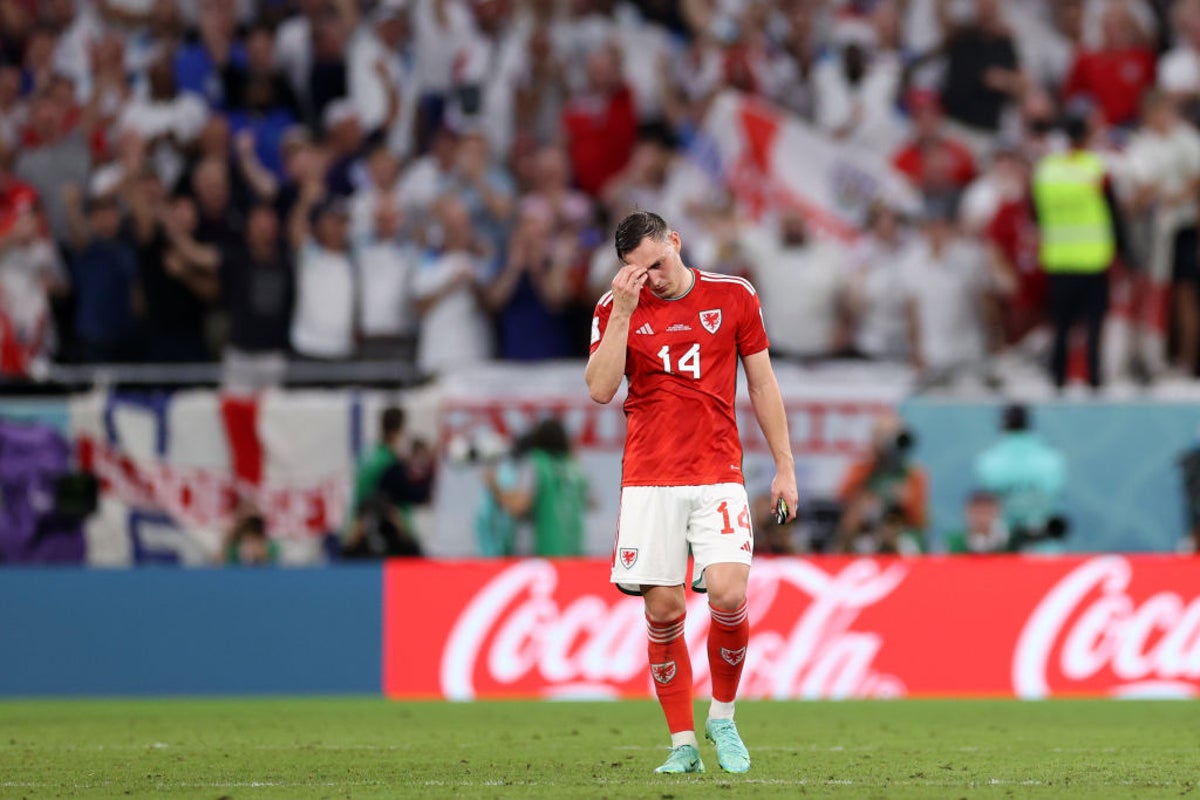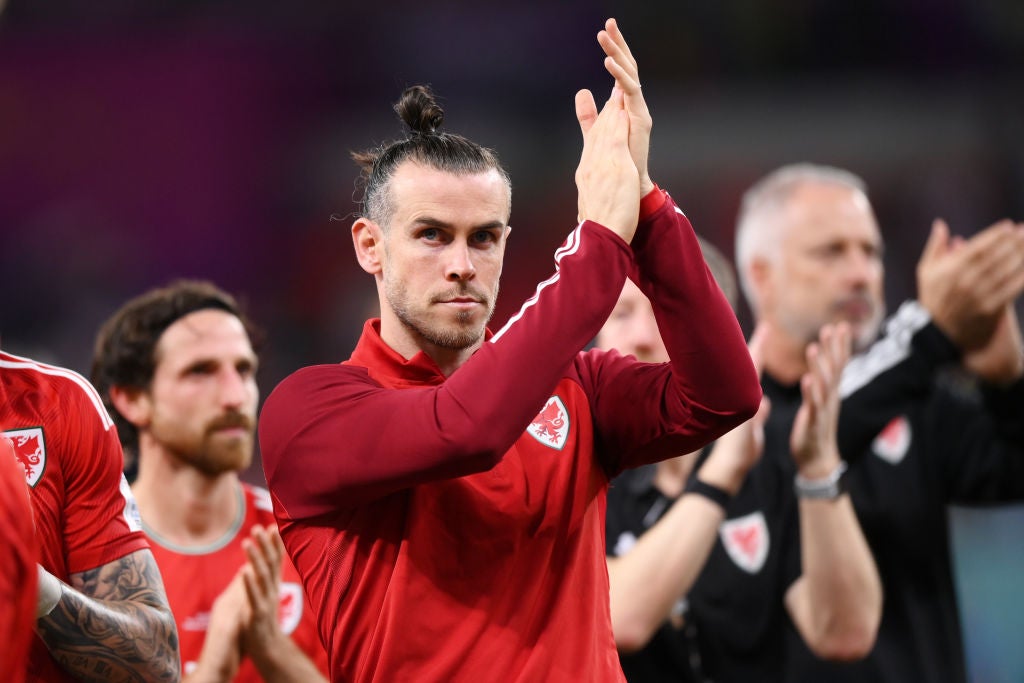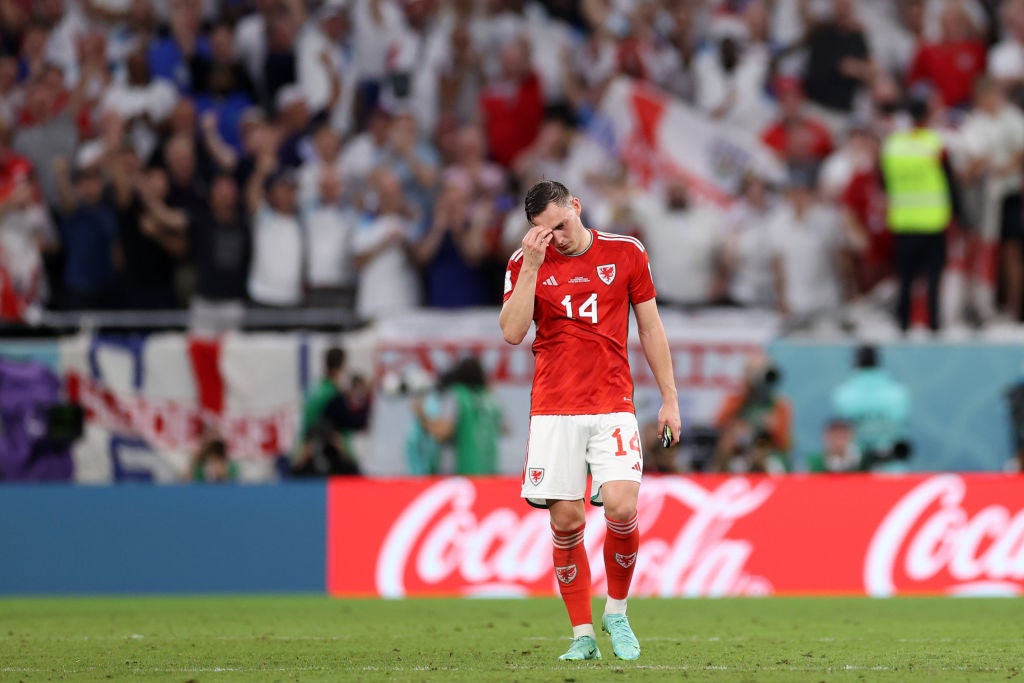
It only took 143 years from their first meeting to their first in a World Cup. If much has changed in the intervening period – Benjamin Disraeli is no longer prime minister or Qatar part of the Ottoman Empire, for starters – and it might be an exaggeration to say it will be another century and a half before Wales and England face off in a World Cup again, it could be quite some time before “Yma o Hyd” is heard by a global audience again.
Wales limp out of Qatar with one point and one goal. Gareth Bale’s penalty against the United States represented the on-field highlight of a rare venture outside Europe. It was a reminder that they have shown an ability to bloody the noses of bigger nations; yet that draw against the USA has the feel of a last hurrah for this generation or, more accurately, the remnants of the Euro 2016 semi-finalists.
Then they entered injury time against England level, even if they were defeated by Daniel Sturridge. The rematch was more one-sided. Wales were condemned to defeat, somehow, by Chesney Hawkes, whose inexplicable half-time cameo may have galvanised England as they returned inspired to put their neighbours to the sword. Or maybe it was simply the gulf in talent and strength in depth that told, along with the difference in fitness.

England’s squad players, in Marcus Rashford and Phil Foden, scored three goals between them; the Wales counterparts of the prodigies of the Manchester giants may be Cardiff’s Mark Harris and Ruben Colwill, or MK Dons’ Matthew Smith. Perhaps, given their place in the original pecking order, Bournemouth’s Kieffer Moore and Nottingham Forest’s Brennan Johnson, neither of whom started the opening game, both of whom plied their trade in the Championship last season.
An altogether more potent forward, Ian Rush, was in the posh seats; he scored 346 goals for Liverpool but never made it to a World Cup. Nor did any of the other Welsh greats in the generations between John Charles and Bale. Sometimes the achievement is simply being there; not for Brazil or Germany, or even England, but for Wales. The Red Wall’s requirements for previous World Cups had involved a widescreen television, not the Hayya Card that serves as an entry permit to Qatar. They can say they have seen their country in the global game on the global stage which, considering how few travelled to Sweden in 1958, not many others ever have. Now there is a Welshman under the age of 85 who can say he has played in a World Cup.
There is a Welsh legend who has scored in one. Bale’s attempt to turn back time, to 1958 as well as 2016, ended in anti-climax, the reality he did not reappear after the break denying him the ovation he deserved; not so much for his performances this November as over the last 16 years. Bale picked himself, perhaps literally given his colossal presence in their camp. He has made three starts in club football in 2022 and three in nine days in a World Cup.
He did not quite fulfil his promise to play 90 minutes in each group game but there was something vaguely heroic that, immobile as he is, only, he, Joe Rodon, Chris Mepham and Ben Davies completed the first two-and-a-half matches of the tournament. Then, finally, having even attempted to track back, he could continue no longer. Aaron Ramsey inherited the armband but the days when he was arguably the finest British attacking midfielder are long since gone. That tag may now belong to Jude Bellingham or Mason Mount or James Maddison; perhaps Foden if he ever played in midfield. But not Ramsey. The shame for him and Bale may be that the World Cup Wales qualified for in their lifetimes was 2022, not 2014 or 2018 when they could have been dynamic and destructive.

With those elder statesmen diminished, Joe Rodon and Ben Davies had been contenders for the title of Wales’ player of the tournament, but Rashford’s opener stemmed from a free kick the centre-back conceded and Foden’s second occurred after the left-back lost the ball. As injuries deprived them of Davies and Neco Williams, as Joe Allen’s first start in 10 weeks was curtailed, they ended with Burnley right-back Connor Roberts playing left-back, and the defensive midfielder or centre-back Ethan Ampadu at right-back. Colwill joined Joe Morrell of League One Portsmouth in the centre of the pitch.
It was an unwanted glimpse of Wales’ future, a random assortment of triers stitched together. Much as his country provides him with a reason to continue playing, even as he denied this will be his final international, Bale will surely be gone by the next World Cup qualifying campaign, perhaps Ramsey too. Allen, the man who knits the team together, will be 15 years into his international career. Wales have a host of young players but they do not brim with the potential to be transformative, as Bale has been. He first allied ball-striking ability with searing speed and then, as his legs slowed, with force of personality. The chances are that the next World Cup will take place without Wales. Yet even amid the deflating sense of underachievement, the wonder is that they made it to this one.







